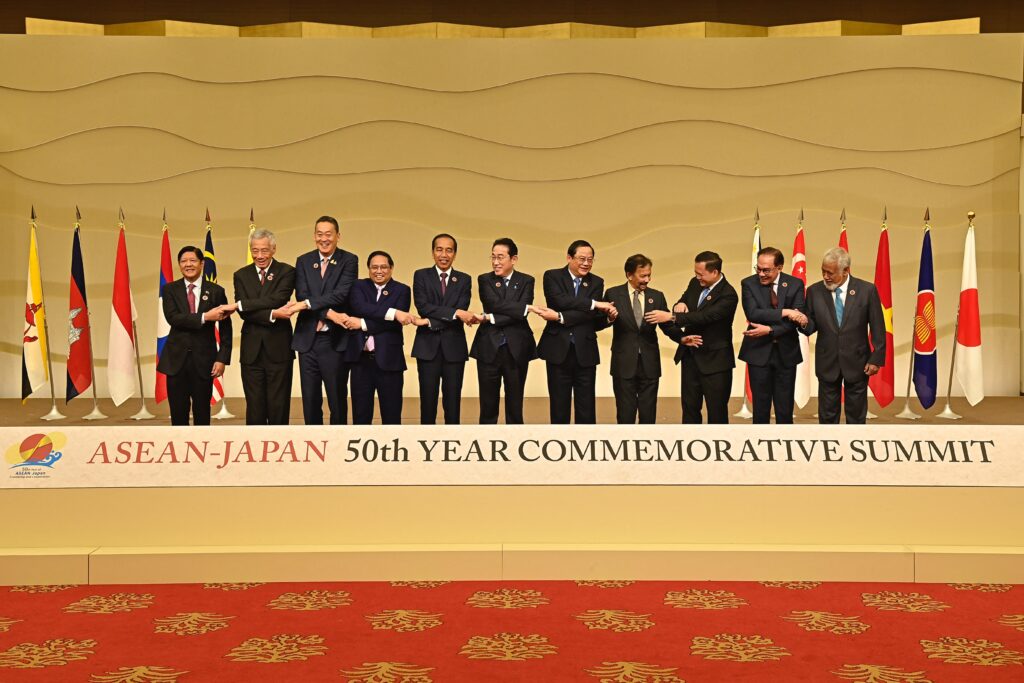
- ARAB NEWS
- 18 Jul 2025

Tokyo: Leaders of Japan and the Association of Southeast Asian Nations adopted a joint statement showing their vision for the future on Sunday, the second day of the three-day Japan-ASEAN special summit in Tokyo marking 50 years of their friendship and cooperation.
In the statement, the leaders affirmed their intentions to strengthen collaboration in the security field, apparently bearing China’s aggressive maritime expansion in mind.
They also agreed on cooperation regarding electric vehicles and other next-generation automobiles.
The joint statement declared that Japan and ASEAN will aim for a world where all countries can “uphold the principles of democracy, the rule of law and good governance, and respect for and protection of human rights and fundamental freedoms.”
It showed how the two sides will work together in three areas–peace and stability, co-creation of the economy and society for the future, and people-to-people exchanges.
The leaders also announced an action plan comprising about 130 concrete steps.
At a session earlier on Sunday, Japanese Prime Minister Fumio Kishida told the ASEAN leaders that the Japanese public and private sectors will aim to invest a total of 35 billion dollars over the next five years.
At a joint press conference, Kishida said, “As divisions and confrontations deepen in various parts on the globe, and the world faces complex crises, Japan will stand together with ASEAN, the linchpin of a free and open Indo-Pacific.”
He said that Japan will promote its official security assistance (OSA) program, under which the country supplies defense equipment to like-minded countries free of charge.
The Japanese leader also said that the ASEAN-Japan Co-Creation Initiative for the Next Generation Automotive Industry will be launched, with Japan poised to help ASEAN nations create and implement strategies for boosting their EV production capacities.
A human exchange program called Partnership to Co-create a Future with the Next Generation, involving a total of 10 million people over 10 years, will also be kicked off, Kishida said.
The joint statement called for the “settlement of differences or disputes by peaceful means and renunciation of the threat or use of force,” adding, “We affirm the shared view to promote a rules-based Indo-Pacific region that is free and open.”
The leaders also agreed to strengthen security collaboration, including at sea, work toward “a world without nuclear weapons” and cooperate more closely in areas including cybersecurity and the fight against terrorism, transnational crime and disinformation.
The statement called for an acceleration of energy transitions through “various and practical” pathways, such as the Asia Zero Emission Community (AZEC) framework, in which Japanese technologies will be utilized to promote decarbonization in Asia.
The Japanese and ASEAN leaders also agreed to facilitate human exchanges involving youths and others in various fields such as culture and art, sports, and science and technology.
On Monday, the final day of the special summit, events, including an AZEC summit, are slated to take place.
JIJI Press